Life
Sign up for our newsletter
We summarize the week's scientific breakthroughs every Thursday.
-
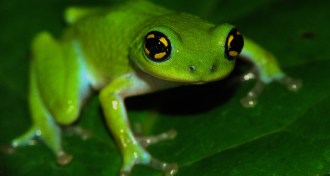 Animals
AnimalsFully formed froglets emerge from dry bamboo nurseries
In remote India, a rare frog mates and lays eggs inside bamboo stalks. The eggs hatch into froglets, forgoing the tadpole stage.
-
 Earth
Earth‘Mass Extinction’ vivifies the science of die-offs
The dinosaurs were killed off some 65 million years ago after a colossal asteroid struck Earth. But what many people probably don’t know is how paleontologists came to that conclusion. "Mass Extinction: Life at the Brink" tells that story.
By Erin Wayman -
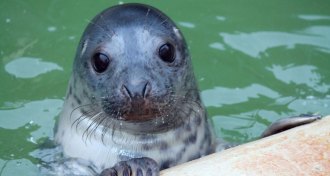 Animals
AnimalsScientists’ tags on fish may be leading seals to lunch
In an experiment, 10 young grey seals learned to associate the sound of a pinging tag with fish. The tags may make fish vulnerable to predators, scientists say.
-
 Neuroscience
NeuroscienceAfter injury, estrogen may shield the brain
Estrogen helps to prevent some of the chronic inflammation that occurs after brain injury.
-
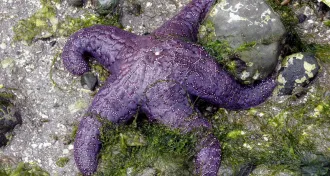 Animals
AnimalsVirus implicated in sea star die-off
Sea stars on the west coast have been wasting away into puddles of slime. Now, scientists think they have pinpointed the virus that is causing the mass die-off of the dazzling marine creatures.
-
 Neuroscience
NeuroscienceBreathing returns to paralyzed rats
Scar tissue–busting enzyme plus rehabilitation therapy improves respiration long after rats’ initial spinal cord injuries.
By Meghan Rosen -
 Life
LifeNorovirus can play protective role in mice
In mice, viral infection can help intestines develop, strengthen immune system.
-
 Neuroscience
NeuroscienceAreas people like to be caressed match up with nerve fibers
A caress in a sweet spot at the right speed activates nerve fibers tied to social touch.
-
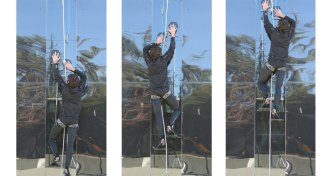 Life
LifeSprings bring gecko stickiness to human scale
Springs of a stretchy alloy let gecko-inspired adhesives work at human scales to climb glass walls or grab space junk.
By Susan Milius -
 Neuroscience
NeuroscienceProtein production prevents sleep-loss forgetfulness
Boosting levels of certain proteins in mice prevented memory problems associated with sleep deprivation.
-
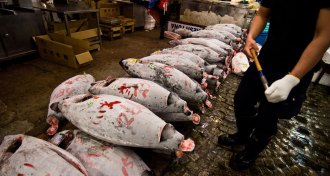 Life
LifeTasty animals end up on latest list of threatened species
Growing food market lands several species, including Pacific bluefin tuna and Chinese pufferfish, on the IUCN Red List of Threatened Species.
-
 Neuroscience
NeuroscienceMold may mean bad news for the brain
Living with mold isn’t good for your lungs. A study in mice shows that mold exposure may also cause inflammation that is bad for the brain.